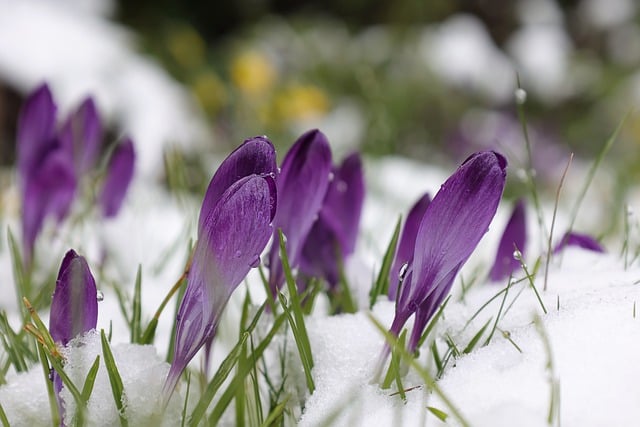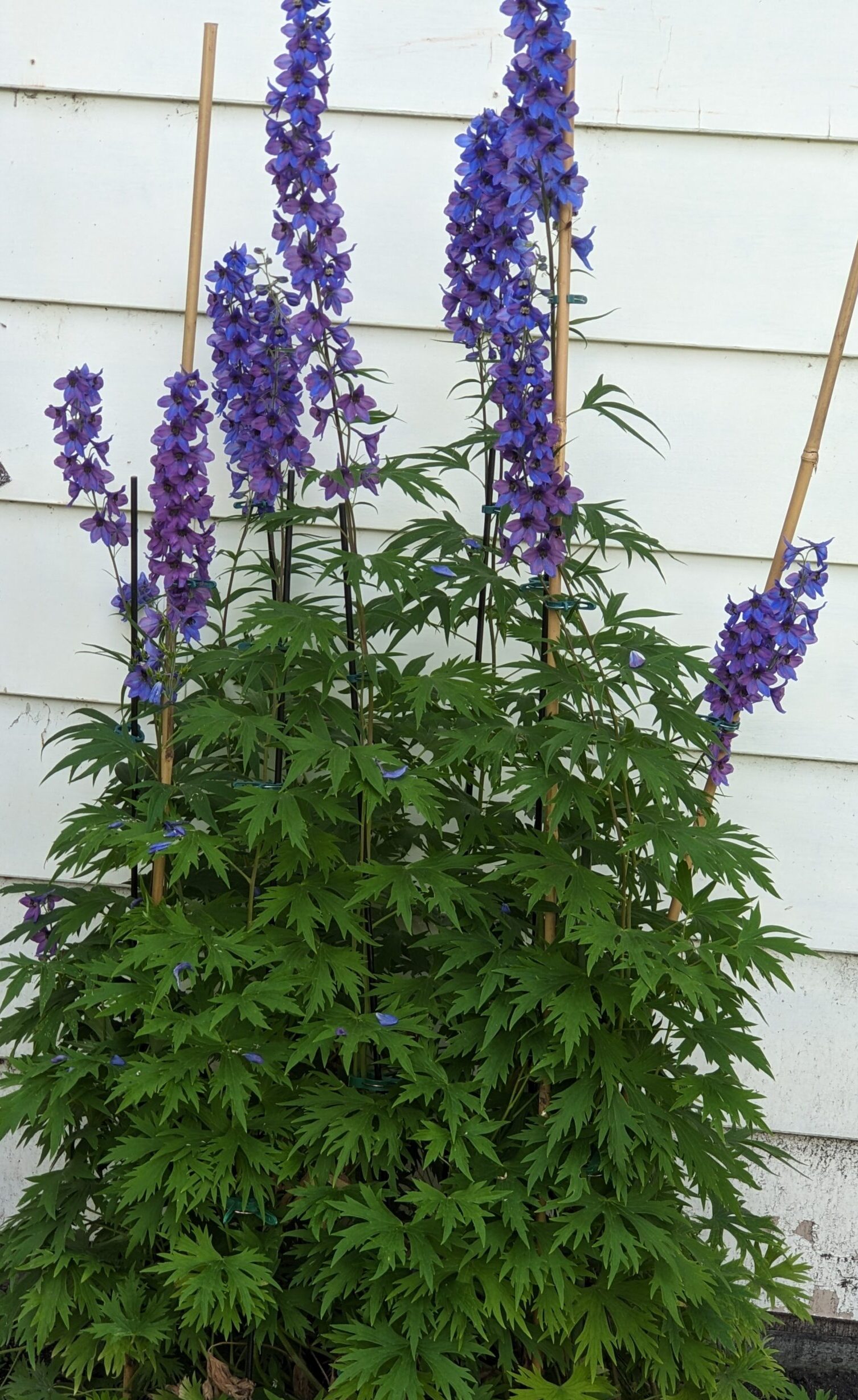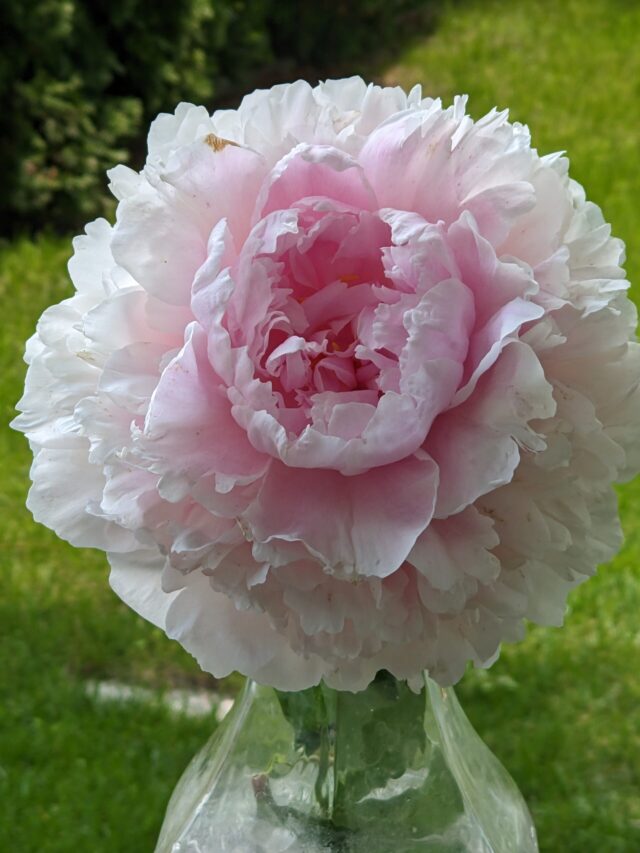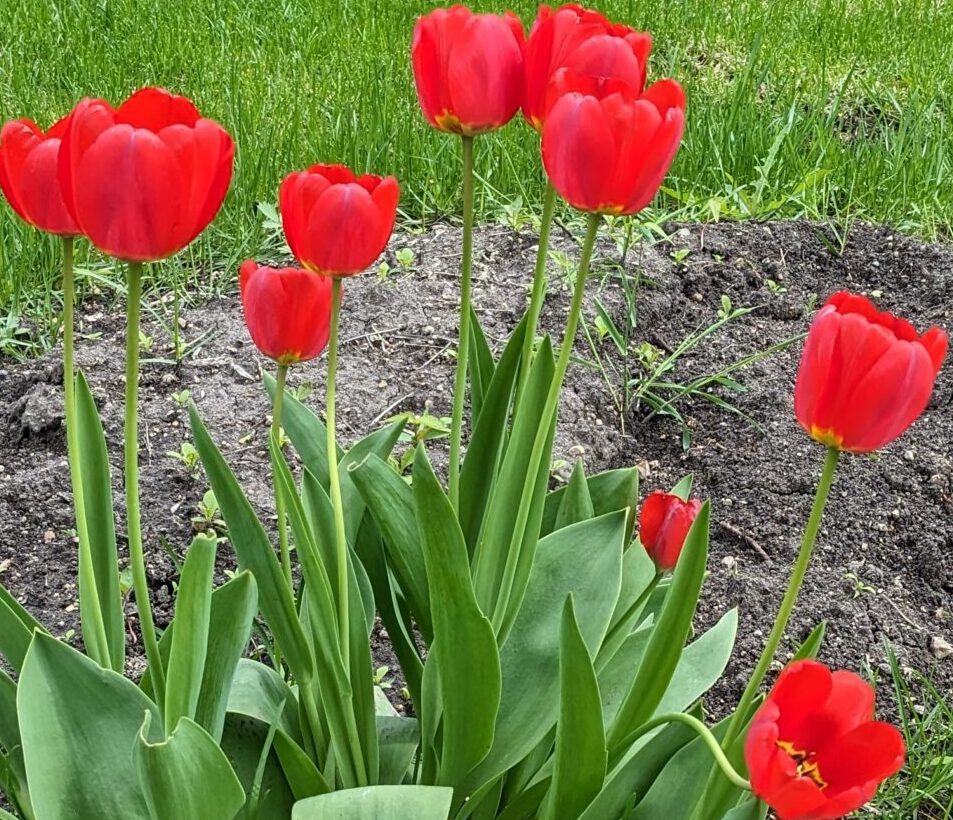
Winter in Manitoba can feel like a never-ending ice age!
If you’re anything like me, you might find yourself reluctantly enduring the frigid temperatures, looking forward to warmer weather and time in the garden.
But did you know that this cold season is actually beneficial?
In fact, cold weather helps our gardens thrive!
While we bundle up in layers, nature is quietly preparing for a spectacular spring revival.
In the Northern Hemisphere, winter is nature’s time for slowness and rest; nature’s pause before the lively growing season kicks in.
So, as we navigate the snowy sidewalks and dodge icy wind chills, let’s take a moment to appreciate how those chilly months are actually working in our favor.
After all, if winter can help our gardens grow, maybe it’s not so bad after all; right?
Join me as we uncover the hidden benefits of cold weather for our gardens, from pest control to soil rejuvenation, and discover how the cold can be a gardener’s best friend!
Table of Contents
- 1. How Cold Keeps Bugs Away:
- 2. Why Winter Is a Garden Cleanser:
- 3. How Cold Weather Builds Stronger Plants:
- 4. Snow: Nature’s Winter Gifts:
- My Final Thoughts
1. How Cold Keeps Bugs Away:
Winter offers one of the best gifts to our gardens; its ability to keep pests at bay!
Think of cold weather as nature’s exterminator, working diligently to eliminate the insects that would wreak havoc come spring.
A Frosty Bug Extermination
Freezing temperatures act like a natural barrier for insects; they struggle to survive the cold.
From aphids to beetles and their eggs, these pests find it tough when temperatures drop, especially during prolonged cold spells.
My Delphiniums’ Winter Warrior Story
I learned this lesson firsthand with my delphiniums. A few years ago, a series of mild winters allowed pests to overwinter, leading to a frustrating three-year battle with these invaders.
However, the colder, snow-filled winters that followed made those pests disappear faster than my motivation to shovel the driveway!
My delphiniums bounced back, proving that sometimes, a little frost is just what the garden needs!

The Snow Shield: Nature’s Lockdown
Now, let’s discuss snow. While it may seem like a nuisance to shovel, it acts as both an insulator and a barrier for our plants!
Though it may shelter some pests in the soil, it also prevents others from escaping deeper underground to avoid the frost.
This combination ensures that fewer unwanted insects emerge in the spring, leaving your garden ready to bloom without the usual pest drama.
So, the next time you find yourself grumbling about the cold, remember that winter is working hard to keep your garden healthy and pest-free.
Who knew winter could be such a valuable ally?
As we explore the benefits of cold weather, it’s important to recognize how frost not only protects our gardens from pests but also plays a crucial role in fighting plant diseases.
2. Why Winter Is a Garden Cleanser:
This chilly season is essential for keeping our gardens healthy by combating diseases. Cold weather is like a spa retreat for your soil, removing harmful pathogens and providing it with a fresh start!
The Cold Cure for Pesky Plant Diseases
Freezing temperatures are tough on pesky pathogens like fungi and bacteria.
They struggle to survive in the cold, and prolonged exposure effectively halts their life cycles.
While we huddle indoors, frost works diligently to ensure our gardens are disease-free come spring.
It’s like winter is throwing a party and only the strong survive!
So, while we’re huddled indoors, the frost is working hard to ensure that our gardens are disease-free come spring.
My Peonies’ Winter Spa Treatment
I experienced this firsthand with my beloved peonies. After a particularly harsh winter followed by a cool, wet spring, I noticed something magical. Their leaf deformities vanished!
It was as if winter had waved a magic wand over my garden. Not only did they recover, but they produced some of the largest, most beautiful blooms I’d ever seen!
I like to think they were thanking winter for the much-needed detox!

Snow: Nature’s Cozy Blanket
And let’s not forget about snow’s role in this cleansing process!
Snow acts as an insulating blanket for beneficial microbes in the soil, keeping them safe while suppressing harmful pathogens.
Remember, winter is a vital part of your garden’s health. Every blanket of frost gives your plants a fresh start when spring arrives!
As winter not only fights off diseases but also strengthens our plants, let’s explore how the cold weather contributes to their resilience and vitality for the growing season ahead.
3. How Cold Weather Builds Stronger Plants:
Just like us, plants need a little tough love to grow strong and resilient. Enter winter, where our hardy perennials and bulbs are getting a much-needed workout that prepares them for the vibrant growing season ahead!
Nature’s Winter Workout
During the winter months, many perennials and bulbs enter a state of dormancy to conserve energy and strengthen their roots, much like a hibernating bear.
It might seem like they’re just sitting there, but trust me, they’re hard at work beneath the surface, building the foundation for a robust spring.
Bulbs like daffodils, hyacinths, and alliums, along with perennials such as peonies, daylilies, and hostas, benefit from this restful period.
After all, even plants need their beauty sleep to look fabulous in spring!
Winter’s Seed Boot Camp
Winter isn’t just a time for rest; it’s also a crucial workout for these plants. Cold weather helps to build stronger plants by promoting hardiness and resilience.
Just as athletes train in challenging conditions to prepare for competition, plants use this cold exposure to toughen up.
This process is particularly important for those that require vernalization; a period of chilling to trigger blooming!
Many spring-flowering bulbs, including tulips, thrive after experiencing cold temperatures, while certain perennials like the iris also benefit.
My Tulips: The Overchievers of Spring
In my garden, I’ve seen firsthand how these little champions respond to the cold. When the ground freezes and thaws, it triggers essential changes in them that prepare them to bloom beautifully.
Every year, I marvel at how they push through the frost and snow, refusing to be tamed by the cold.
It’s like they have a secret pact with winter: “You chill us, and we’ll reward you with stunning blooms!
When those vibrant petals finally burst open in the spring, it feels like a victory. A testament to resilience and the power of nature!

Winter’s Secret Ingredient: Stratification
Stratification complements dormancy and vernalization by exposing seeds to cold and moist conditions to break dormancy, allowing for effective germination.
Plants like native wildflowers and certain fruit trees thrive with this process. So, while the ground may be frozen, nature is preparing the next generation of plants for success.
As you bundle up against the winter chill, remember that your garden is engaging in a vital workout to emerge stronger and more vibrant when spring arrives.
Who knew winter could be so productive? Just think of it as nature’s way of getting fit for the gardening season ahead!
As winter blankets your garden, it brings along some unexpected benefits that will set the stage for a thriving spring.
4. Snow: Nature’s Winter Gifts:
As winter coats the garden with a gentle layer of snow, many people may perceive it as a lifeless scene. Yet, hidden beneath this frosty layer is a wealth of advantages for your plants!
Snow’s Secret Soil Boost
Snow acts like a natural blanket for your garden, promoting soil aeration through the freeze and thaw cycle. As the snow melts, it allows air to penetrate deeper into the ground, encouraging healthy root growth.
This process helps to break up compacted soil, giving your plants a much-needed boost; like a refreshing winter wake-up call!
Fluffy Snow-Slow Release Fertilizer
As snow melts, it slowly releases moisture and nutrients into the soil. This gradual process ensures that your plants receive a steady supply of nourishment, rather than a sudden flood.
Think of it as a winter buffet, where your plants can savor their nutrients at a leisurely pace!
Winter’s Cozy Mulch
Beyond its beauty, snow acts as an insulator, shielding plant roots from extreme temperature fluctuations. Instead of plants being exposed to deep freezes and sudden thaws, snow keeps temperatures more stable beneath the surface.
I always make sure to add a layer of mulch to my garden in the fall, as it provides an extra barrier of protection!
It’s like tucking your garden in with a soft, protective blanket for the season!
Weed-Free Winter Bonus
Another hidden benefit? Snow helps suppress weeds!
With fewer weeds sprouting in cold months, your garden soil gets a well-deserved break, retaining more nutrients for your plants in spring.
It’s a natural reset button, setting the stage for a thriving, less competitive growing season ahead!
So, while winter may seem like a quiet time in the garden, snow is working hard behind the scenes, proving that sometimes the best things come wrapped in a chilly package!

My Final Thoughts
In summary, understanding how cold weather helps our gardens thrive reveals the hidden benefits of winter.
From the resilience of plants during dormancy to the vital role of snow as a natural fertilizer and protective mulch, each aspect contributes significantly to soil health and prepares your garden for vibrant growth in spring.
Additionally, the freeze and thaw cycle enhances soil aeration, while the cold temperatures also helps suppress weeds.
Embrace the beauty of winter and the unique opportunities it presents for your plants!
Thank you for joining me on this journey!
I hope you found this blog on How Cold Weather Helps Our Gardens Thrive, both informative and inspiring. Your thoughts and experiences are invaluable, so please feel free to leave comments below.
Here’s to a flourishing season ahead!
Take care of yourself,
Barb
